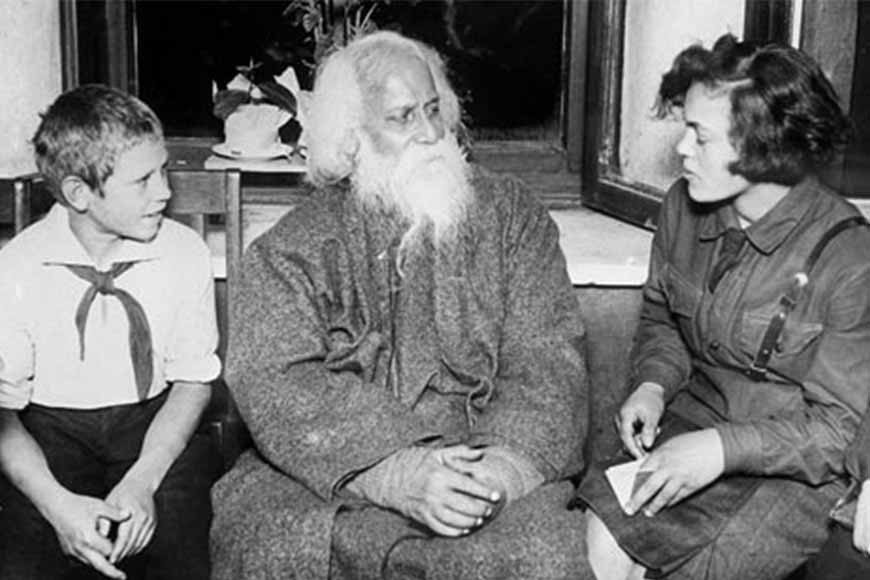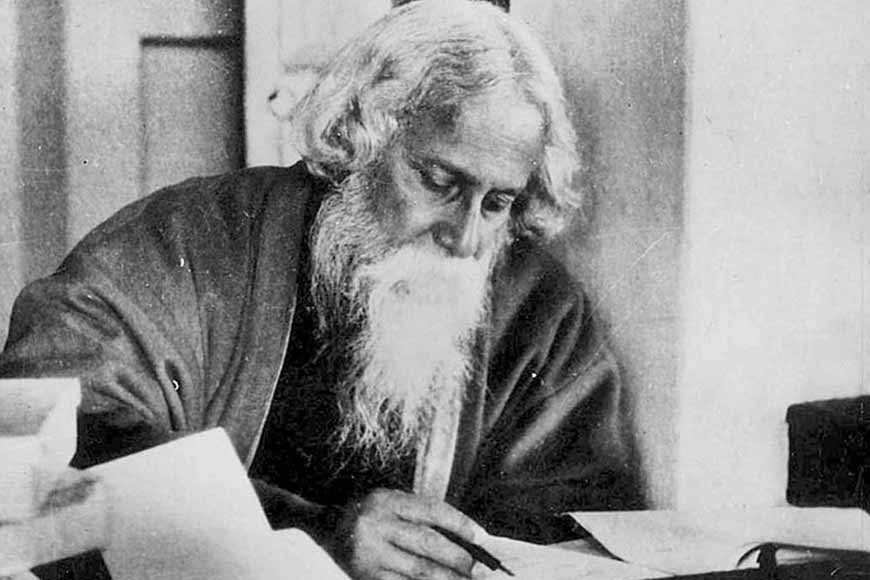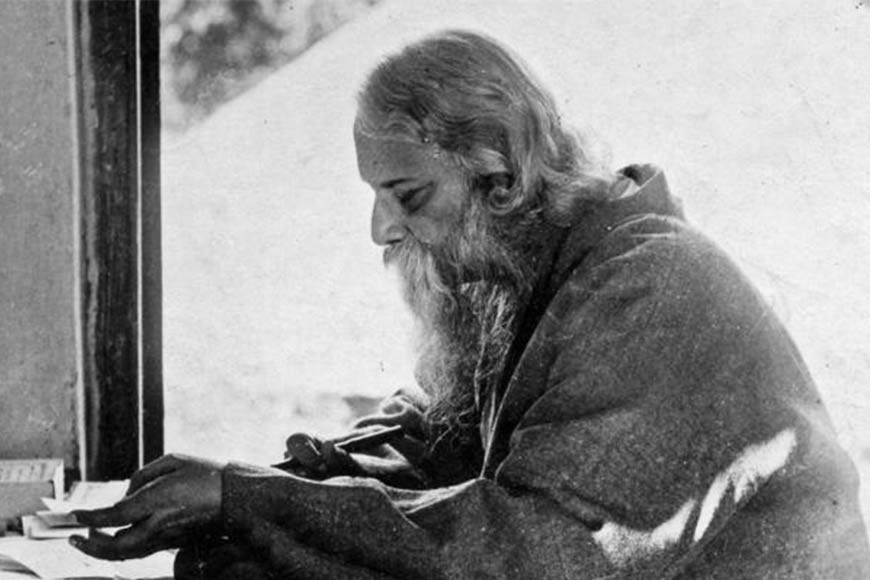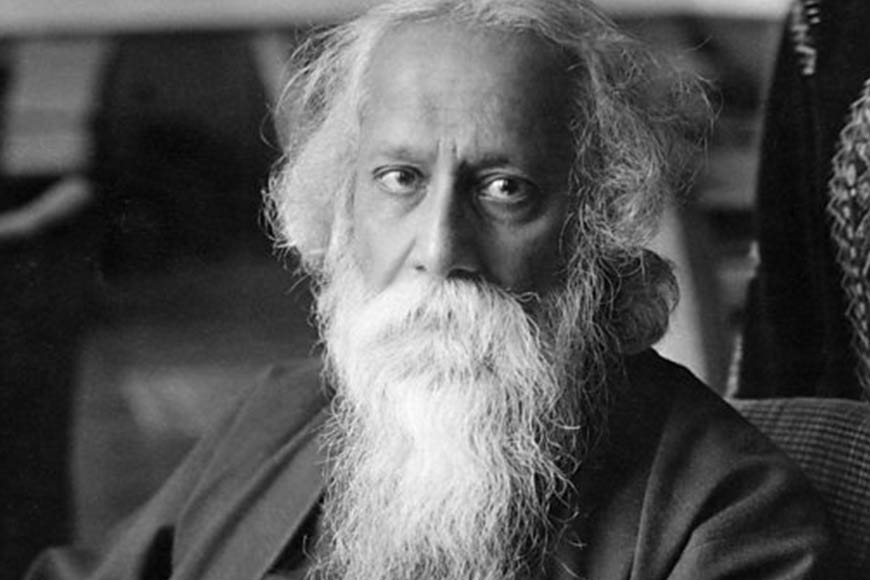Tagore’s ‘Letters from Russia’ written almost a century ago reflects a confused nation

Letters from Russia by Rabindranath Tagore written in 1930 is not just a treasure trove of memories but a detailed explanation of a country’s psyche, a nation that blended socialism with violence and radical ideologies that Tagore felt might not bear fruit in the future. The present war between Russia and Ukraine might have its seeds in that psyche that Rabindranath Tagore so well explained in his letters from Russia.
GB carries this series reflecting on why these letters are valuable in the present war-ripped Europe
“Man cannot do good to those whom he does not respect…” These are not my words, but that of one of the greatest author-philosophers that the world has ever produced – Rabindranath Tagore. And these words are not just profound, but so relevant in the present bloodbath between Russia and Ukraine that the world witnesses today. Not getting into the political gamut of why the war, and who started the war, one feels like asking the big powers playing with their missiles, ‘Would the world poet still write about the beauty of Ukraine and Russia in letters to his dear ones and to the people of Russia had he been still alive today?’

Tagore had felt while visiting Russia that respecting others is a value defined by formal and political equality under the law. Thus, he says in one of his letters from Russia: “Only by becoming equal can one render real help.” And when today the destructive bombs turn beautiful green-laden cities into horror pages straight taken out from World War II films, one wonders how rightly Tagore had viewed the socialism of Russia and did he anticipate such peril in the future?
#OTD in 1930, Rabindranath Tagore went for sightseeing excursion in #Moscow. Also, he met with students and told them about his own school at #Santiniketan.#TagoreInRussia pic.twitter.com/0vvhHij3VQ
— Russia in India 🇷🇺 (@RusEmbIndia) September 23, 2020
Rabindranath Tagore reached the Soviet Union on September 11, 1930. That was almost a century ago. And quite late in his life, though he always had a desire to visit the nation. Somehow it never worked out as Alexander Arosyev, then Soviet Union’s ambassador in Stockholm, who was also a writer and wanted Tagore to visit his motherland, was executed during Stalin’s regime. Thus, the visit through Arosyev never happened. Later journalist and playwright Anatoly Lunacharsky, who was part of the Ministry of Education, invited Tagore and Russian orientalist Sergei Oldenburg, who specialized in Buddhist studies was happy to host the great thinker on world literature. Tagore’s visit to Russia left behind not just memories, but some of the most valuable letters that were translated into Russian in 1956. Letters of Russia has a deeper thought and reflection about a nation that swung between love and hatred, between socialist ideology and the dictatorial regime of Stalin.
Russia was a nation and culture that seemed to be confusing to Tagore. He could not decipher at times what the nation really stood for. His confusion is clear through the letter, the first that he wrote while staying in Russia on September 20, and the last, that he writes when he leaves the Russian soil for Berlin. Russia somehow did never get out of his mind and he digs deeper through the letters into a socio-political story that probably even today influences its political decisions. He keeps on talking about impressions, varied that he acquired in Russia. Even while sailing to America on the German ocean liner, SS Bremen, he still writes letters back home in India talking about the impact that Russia had over the world and the questions it raised in his mind. He was looking out for answers.

In his letters, certain words and expressions come over and over. Like “world’s nameless people who live without dignity and hope,” “nothing permanent can be built on charity,” “becoming equal” and “self-interest.” Tagore was highly critical of the ‘Self-Interest.’ Socialism in Russia was at times plagued with it, despite the ethics and high morals that such ideology reflected compared to the capitalist ideas of the Western nations and world powers like the USA and Britain. He repeatedly mentions: “The chief enemy is the self-interest of power that denies people their human rights.” Tagore felt Russia found a radical solution to the problem of self-interest in communism, but he was not sure of “the final fruit” of the experiment for he had already observed closely “grave defects” in the system. And Tagore had a curious mind. He never bought ideologies at face value. He always dissected them and went right under the skin. Maybe Tagore to some extent was correct in his understanding of the Russian socio-political map and maybe today’s aggressive war of Russia against an independent nation had its seeds back then.

Tagore’s primary reason to visit Russia was to study their new education system under the communist regime. He himself loved experimenting with knowledge and syllabus and that’s what he kept doing at Visva Bharati. He was impressed by the “experiments” being carried out with the “methods of teaching” in Russia. But in his first letter, he warns that such an education system will not be able to sustain in the long run as it is more theory and fails to correspond with the law of the living mind. However, some visits were valuable. He had visited an educational centre called Pioneers’ Commune. In his fifth letter, which he wrote from Berlin on October 1, he narrates this visit and was impressed by how orphaned children were being taught with a lot of care instead of being neglected. They answered his questions with confidence, and they explained to Tagore Russia’s Five-Year-Plan. In the Pioneer guestbook, he wrote, “I shall always remember the wonderful evening I spent with these pioneers. I learned much from them that will be extremely beneficial to my people in India, for which I am grateful to them. I wholeheartedly feel sympathy for these young builders of the fate of a people and wish them success. R. Tagore”.
(To be continued)










